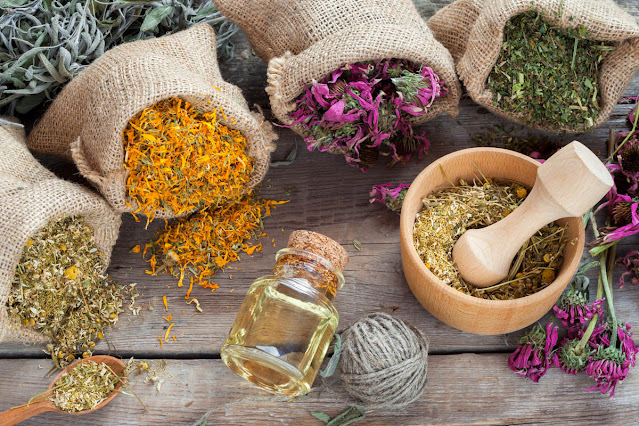Herbs for Blood Purification: Exploring Nature's Cleansing Arsenal
Introduction:
Throughout history, various cultures have turned to the healing power of nature to address health concerns, including the purification of the blood. Herbs have been a cornerstone of traditional medicine systems, believed to possess properties that promote detoxification and overall well-being. In this exploration, we delve into a selection of herbs known for their potential blood-purifying attributes, examining their historical usage, active compounds, and contemporary scientific insights.
- Burdock Root (Arctium lappa):
Historical Context: Burdock root has a long history of use in traditional medicine, particularly in herbalism. It has been employed to address skin conditions, support kidney function, and assist in detoxification processes.
Active Compounds: Burdock root contains inulin, a prebiotic fiber that supports gut health, along with various antioxidants and polyphenols. These compounds are believed to contribute to its potential detoxifying effects.
Scientific Insights: Limited scientific studies suggest that burdock root might have anti-inflammatory and antioxidant properties. Its potential to support liver health and aid in the removal of waste products has been explored. However, more rigorous research is needed to establish its direct impact on blood purification.
- Neem (Azadirachta indica):
Historical Context: Neem holds a significant place in Ayurvedic medicine as a potent blood purifier. It has been utilized to address skin conditions, digestive issues, and overall detoxification.
Active Compounds: Neem contains nimbin and nimbidin, which possess antifungal, antibacterial, and anti-inflammatory properties. These compounds contribute to neem's potential detoxifying effects.
Scientific Insights: Neem's antibacterial and anti-inflammatory properties have been researched, suggesting its potential to support the immune system and skin health. While its detoxification abilities are supported by traditional wisdom, more comprehensive studies are required to understand its impact on overall blood purification.
- Manjistha (Rubia cordifolia):
Historical Context: Manjistha, a key herb in Ayurveda, has been revered for its role in promoting skin health, supporting lymphatic function, and aiding in blood purification.
Active Compounds: The herb contains compounds like rubiadin and purpurin, which are believed to contribute to its antioxidant and anti-inflammatory properties.
Scientific Insights: Scientific investigation into manjistha has shown potential anti-inflammatory effects, suggesting its role in supporting skin health. Its influence on the lymphatic system might indirectly contribute to detoxification processes, but more research is necessary to substantiate its specific allergy ka ilaj.
- Red Clover (Trifolium pratense):
Historical Context: Red clover has been used in traditional herbal medicine to address various conditions, including as a blood purifier. It's believed to help with skin issues and hormonal balance.
Active Compounds: Red clover contains isoflavones, such as genistein and daidzein, which have estrogen-like properties and potential antioxidant effects.
Scientific Insights: Isoflavones in red clover have been studied for their potential impact on menopausal symptoms and hormonal balance. While there's some indication of its potential skin health benefits, direct evidence of blood purification is scarce and requires further investigation.
- Turmeric (Curcuma longa):
Historical Context: Turmeric, a vibrant spice, has a revered place in Ayurvedic medicine and traditional healing systems. It's used for its potential anti-inflammatory, antioxidant, and blood-purifying properties.
Active Compounds: Curcumin, the primary bioactive compound in turmeric, is known for its potent anti-inflammatory and antioxidant effects.
Scientific Insights: Curcumin's anti-inflammatory properties are well-documented, and research suggests it might support liver health. While turmeric's ability to enhance overall well-being is established, its direct role in blood purification is part of a broader spectrum of benefits.
Conclusion:
The world of herbs offers a diverse array of options believed to support blood purification. Rooted in historical traditions, these herbs have been valued for their potential detoxifying effects and contributions to holistic health. However, it's important to note that scientific validation of their direct blood-purifying abilities is often limited and requires further exploration.
Incorporating these herbs into one's wellness routine can be a mindful approach to overall health. However, individuals should exercise caution and consult with healthcare professionals, particularly if they are on medication or have pre-existing health conditions. The synergy between traditional wisdom and modern science presents an opportunity for a balanced understanding of the potential benefits of these herbs for khujli ka ilaj.




Comments
Post a Comment